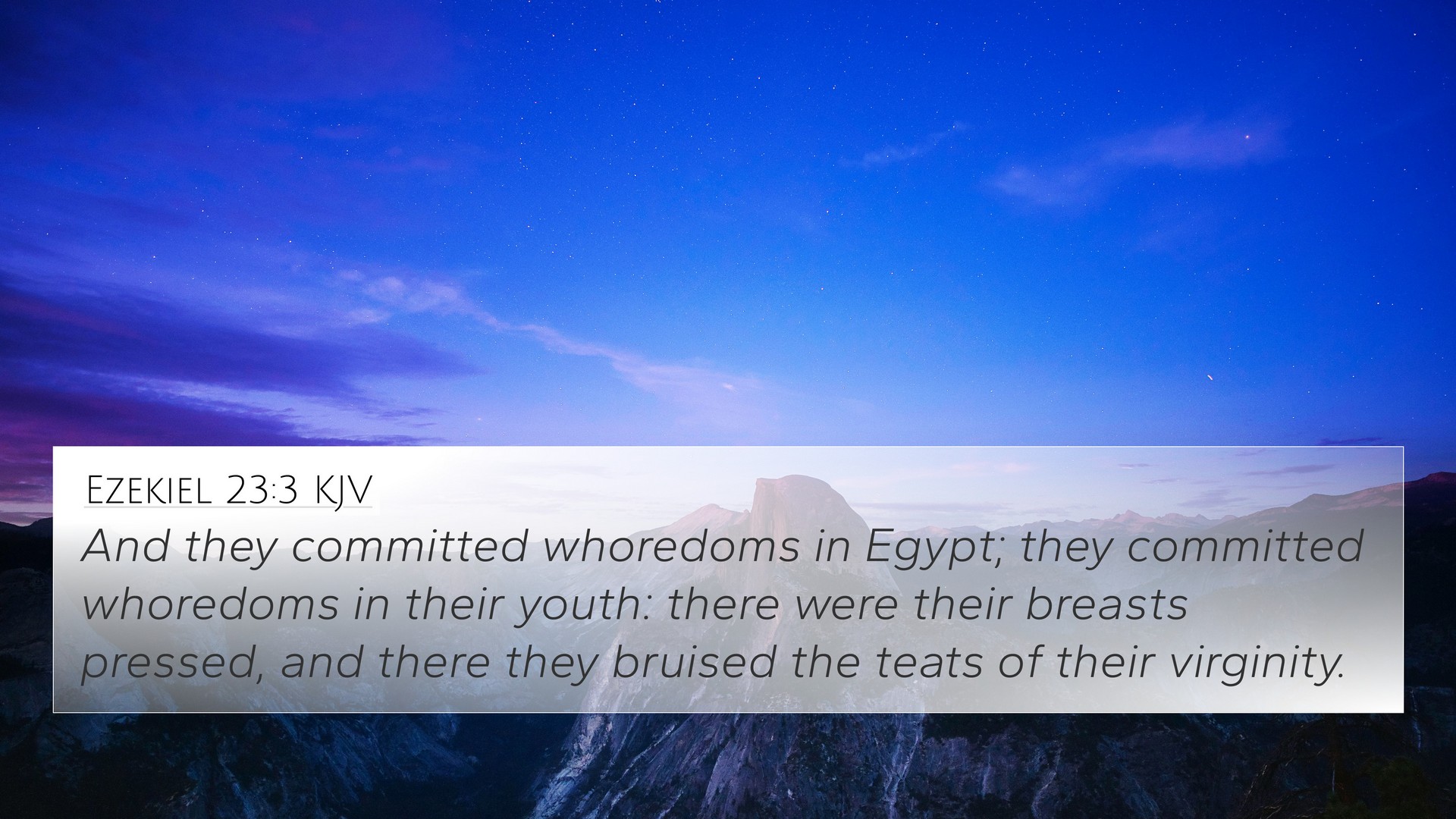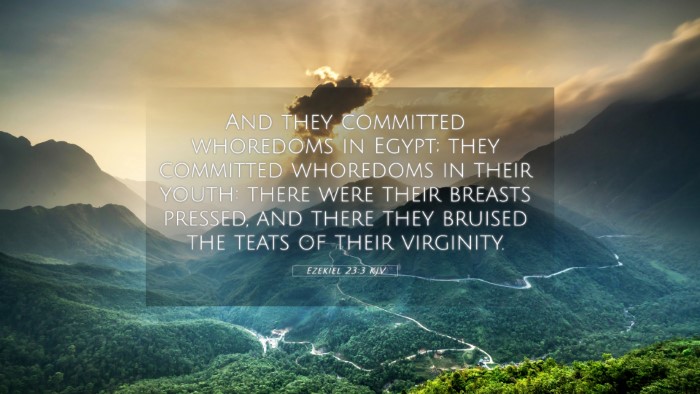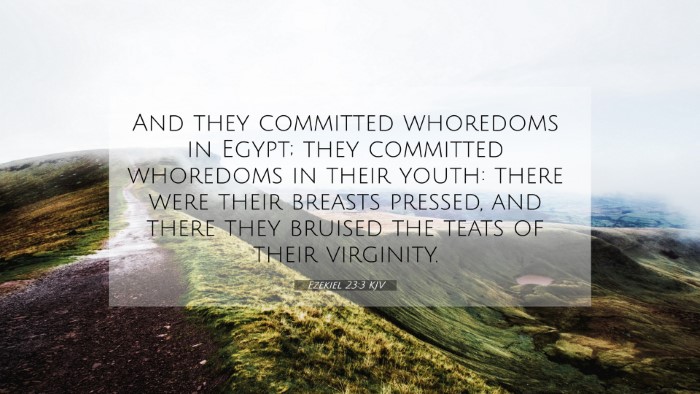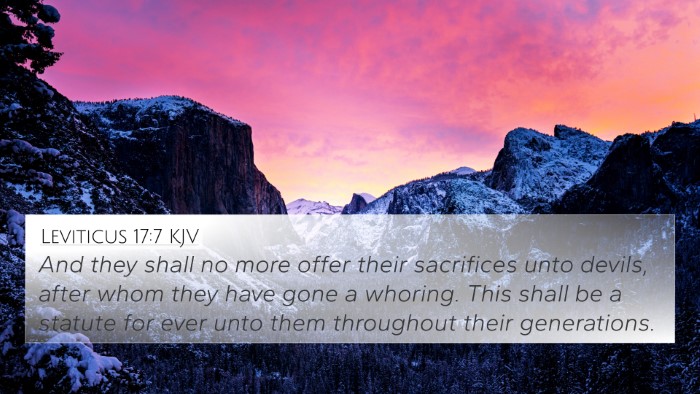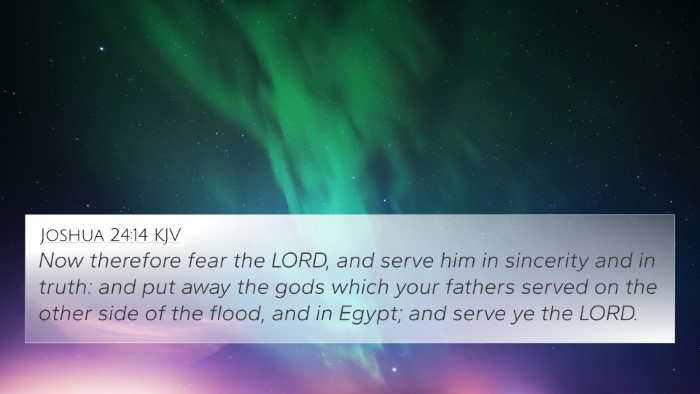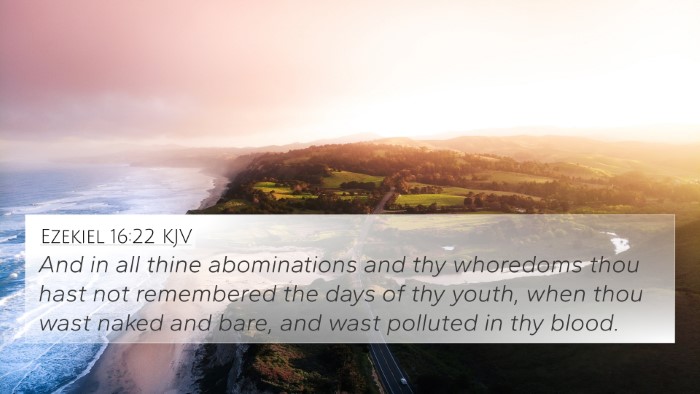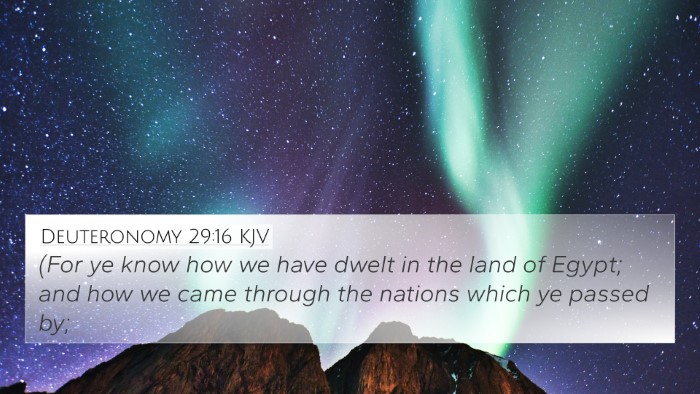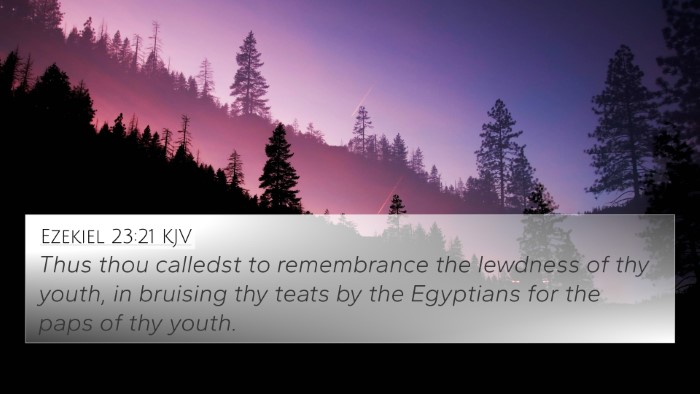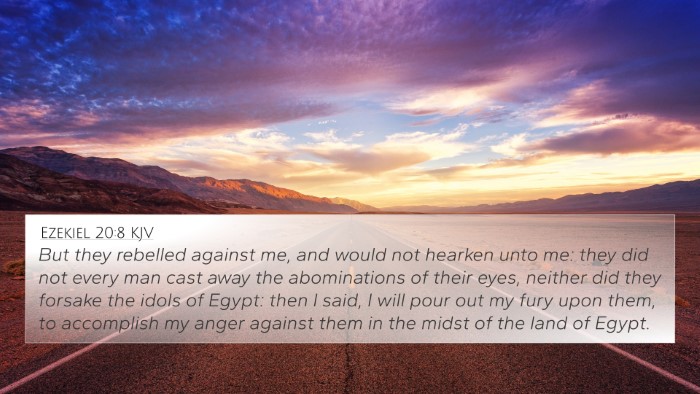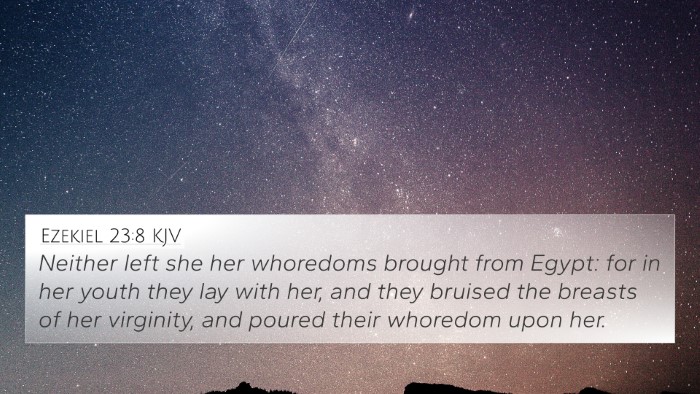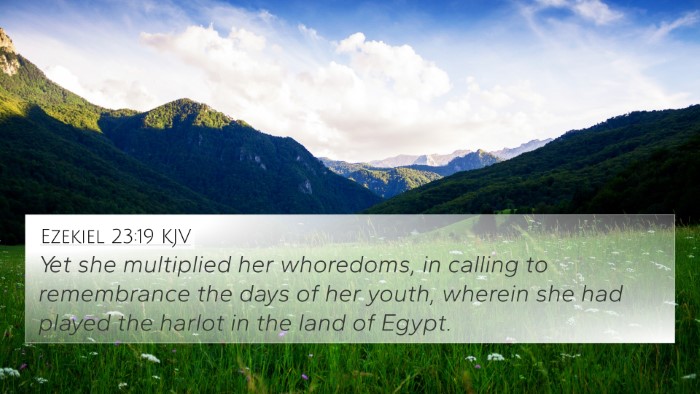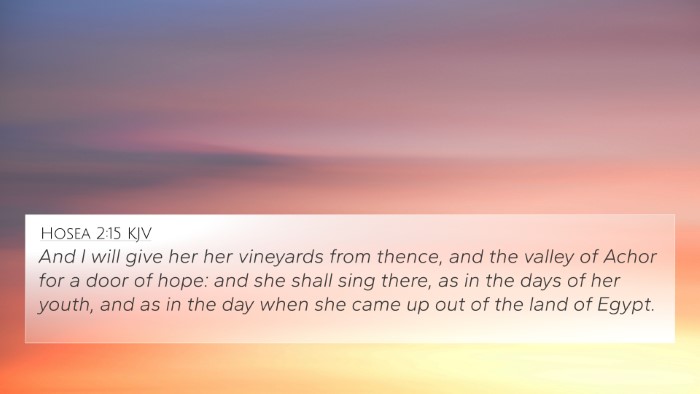Ezekiel 23:3 - Summary and Interpretation
Bible Verse: "And they committed whoredoms in Egypt; they committed whoredoms in their youth: there were their breasts pressed, and there they bruised the teats of their virginity." - Ezekiel 23:3
Context and Overview
This verse is part of a prophetic allegory where the two sisters, Oholah and Oholibah, symbolize Samaria and Jerusalem respectively. The metaphorical language is used to express the infidelity of the Israelites in their covenant with God. Ezekiel uses stark imagery to convey the spiritual and moral corruption of the people through idolatry and alliances with foreign nations.
Interpretation Insights
- Matthew Henry: Henry emphasizes the shameful conduct of Israel in engaging in idolatry, which is comparable to unfaithfulness in marriage. He explains the historical context of Israel being influenced by Egypt and the resulting spiritual decline.
- Albert Barnes: Barnes points out that the reference to Egypt signifies a return to the sinful practices learned from that land. He also notes that this verse paints a picture of the early experiences in idolatry that marked the nation’s youth, leading to long-term consequences.
- Adam Clarke: Clarke elaborates on the symbolic meanings behind the imagery of breasts and virginity, relating them to the joys and innocence of the early days of the Israelites, which were subsequently compromised by their unfaithfulness.
Key Themes
The principal themes presented in Ezekiel 23:3 include:
- Idolatry: The passage highlights the tendency of Israel to turn away from God and worship foreign deities.
- Infidelity: The metaphor of whoredoms denotes spiritual unfaithfulness and a breach of covenant.
- Judgment: This verse serves as a prelude to the judgment that will arrive due to the sins of the people.
Inter-Biblical Connections
This verse connects thematically and contextually with various other scriptures. Key cross-references include:
- Isaiah 1:21: "How the faithful city has become a harlot!" - A parallel expression of spiritual unfaithfulness.
- Jeremiah 2:20: "For long ago I broke your yoke and tore off your bonds; but you said, 'I will not serve!'" - A reminder of Israel's rebellious nature.
- Hosea 1:2: "When the Lord began to speak through Hosea, the Lord said to him, 'Go, take to yourself an adulterous wife...'" - Further allegorical representation of Israel's unfaithfulness.
- Ezekiel 16:15: "But you trusted in your beauty and used your fame to become a prostitute." - Echoes the themes of betrayal and lust in the covenant relationship.
- James 4:4: "You adulterous people, don't you know that friendship with the world means enmity against God?" - New Testament reflection on the same principle of fidelity to God.
- Revelation 18:3: "For all the nations have drunk the maddening wine of her adulteries..." - Speaks to the ongoing theme of spiritual infidelity through history.
- Exodus 34:15–16: "Be careful not to make a treaty with those who live in the land..." - God's warning against idolatrous alliances that Israel repeatedly ignored.
- Romans 1:21-23: "Although they knew God, they neither glorified him as God nor gave thanks to him." - A similar theme of turning away from God and pursuing falsehood.
- 2 Corinthians 11:2: "I am jealous for you with a godly jealousy. I promised you to one husband, to Christ..." - Expresses the aspect of spiritual betrothal and fidelity in the New Covenant.
Practical Applications
The lessons from Ezekiel 23:3 inform contemporary readers about the dangers of compromising one's faith.
- Staying Faithful: Believers are encouraged to remain steadfast in their relationship with God, resisting temptations of the world.
- Understanding Consequences: Acknowledge that turning away from God can lead to negative repercussions in one’s spiritual journey.
- Promoting Vigilance: Christians are called to be vigilant and wary of influences that could compromise their spiritual integrity.
Conclusion
Ezekiel 23:3 serves not only as a historical account of Israel's past but also as a timeless commentary on spiritual fidelity. The layered interpretations derived from the public domain commentaries, along with the strong cross-references presented, highlight the importance of maintaining a pure and faithful relationship with God. These insights encourage a thorough study of scripture that unveils deeper connections and themes throughout the Bible.
